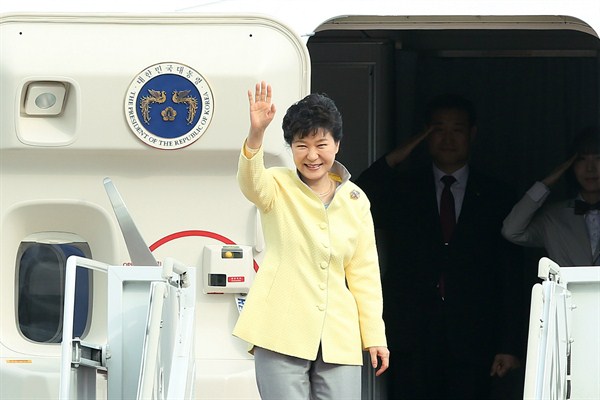South Korean President Park Geun-hye’s high-profile six-day visit to Central Asia last week imparted further momentum to her “Eurasia initiative," intended to deepen South Korean ties with that energy-rich but geopolitically volatile region. The trip also highlighted South Korea’s value to Washington at a time when the U.S. role and influence in the region is declining due to the ebbing U.S. military presence in Afghanistan and strained relations between the United States and the other two great powers active in the region, Russia and China.
Park announced her Eurasia initiative last October. The declared goal is to remove physical and other barriers to greater economic exchanges among South Korea, other Asian countries and Europe. In Central Asia, that means building new infrastructure, increasing regional foreign investment and enhancing regional security. Other governments such as China, Russia and the United States have also been launching similar initiatives to bolster economic integration in Central Asia to help the region resume its key conduit role as a new Silk Road linking Asia and Europe. Park’s entourage included a large delegation of South Korean business executives eager to pursue economic opportunities in the region.
Seoul established diplomatic relations with the newly independent states of Central Asia when they gained independence in the early 1990s. After a slow start, bilateral ties have greatly expanded during the past decade, especially in the economic and energy sectors. Lee Myung-bak, Park’s predecessor and president from 2008 to 2013, pursued two initiatives that indirectly and directly targeted Central Asia: a “Global Korea” campaign and a “New Asia Initiative,” respectively. Lee himself visited Central Asia several times in the space of four years.

